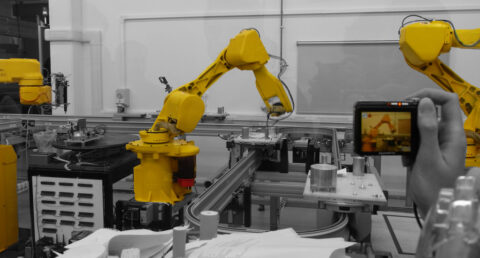Business & the Workforce

Halt to Premium Processing of H-1B Visa Petitions Hurts Workers, Business and USCIS
United States Citizenship and Immigration Services (USCIS) has announced it will halt premium processing of H-1B visa petitions on April 3, for up to six months. Through the H-1B visa category, employers can petition for highly educated professionals to work in “specialty occupations” that require at least a bachelor’s degree… Read More

‘Day Without Immigrants’ Highlights How America Relies on the Immigrant Labor Force
The various events commemorating the “Day Without Immigrants,” held in cities around the country today to fight President Trump’s anti-immigrant policies, underscore a key reality about the United States: we are a nation dependent on immigrants including the undocumented. The Day Without Immigrants was marked by street protests, immigrant… Read More

Change to National Interest Waiver Standard Gives More Entrepreneurs a Path to Permanent Residence
The U.S. Citizenship and Immigration Services (USCIS) Administrative Appeals Office (AAO), recently issued Matter of Dhanasar, which changes the standard that USCIS officers must follow when deciding whether to approve a “national interest waiver” for an immigrant visa petition. This waiver is granted when the foreign national’s work… Read More

Department of Justice Issues Final Rule About Unfair Immigration-Related Employment Practices
The U.S. Department of Justice’s (DOJ) Civil Rights Division recently issued a final rule, effective January 18, to update regulations that the agency uses to enforce employment-related anti-discrimination provisions that Congress included in the “unfair immigration-related employment practices” section of the Immigration and Nationality Act (INA). The agency maintains… Read More

Robots, Not Immigrants, Are Replacing U.S. Manufacturing Workers
There is significant evidence that immigrants boost the economy, create jobs, and bolster innovation. However, President-elect Donald Trump has repeatedly stated he wants to “put American workers first” by restricting immigration. Some Americans who are justifiably concerned about the economy, unemployment, and offshoring mistakenly believe… Read More

New Study Shows the Multiple Forms of Skilled Immigrant Labor
It is well known that immigrants make enormous contributions to the U.S. economy as workers, consumers, taxpayers, and entrepreneurs. As part of the labor force, immigrants are employed in a wide range of industries but tend to be concentrated in some occupations at both ends of the occupational spectrum. At… Read More

Immigration a Boon to U.S. Economy Finds National Panel of Experts
mmigrants and their descendants make valuable contributions to the U.S. economy, according to a new report just released by the National Academies of Sciences, Engineering, and Medicine entitled, The Economic and Fiscal Consequences of Immigration. The exhaustive report is written by a nationally recognized panel of experts. It takes… Read More

Eliminating the Black Market for Labor Between the U.S. and Mexico
Despite its 3,000 mile border and long shared history, the U.S. and Mexico do not currently have a bilateral agreement to regulate the flow of “lower-skilled” labor. Yet, as has long been the case, a significant share of laborers working in the U.S. are unauthorized immigrants from Mexico. In the… Read More

How USCIS Calculates Processing Times and How It Could Be Improved
When people think about immigration reform, they usually think about legalization, enforcement, and updating the legal immigration system. However, there are other upgrades to the immigration system that can be implemented by agencies without legislation which would significantly improve efficiency and could ensure that immigrants, their families, and employers receive… Read More

Why Restricting Immigration Won’t Improve Work Opportunities for Natives
Serious economists know that immigrant and native-born workers cannot simply be swapped for one another like batteries. On average, immigrants and the native-born differ in terms of formal education, job experience, and English-language skills. As a result, immigrants and the native-born tend to “complement” each other rather than directly… Read More
Make a contribution
Make a direct impact on the lives of immigrants.
